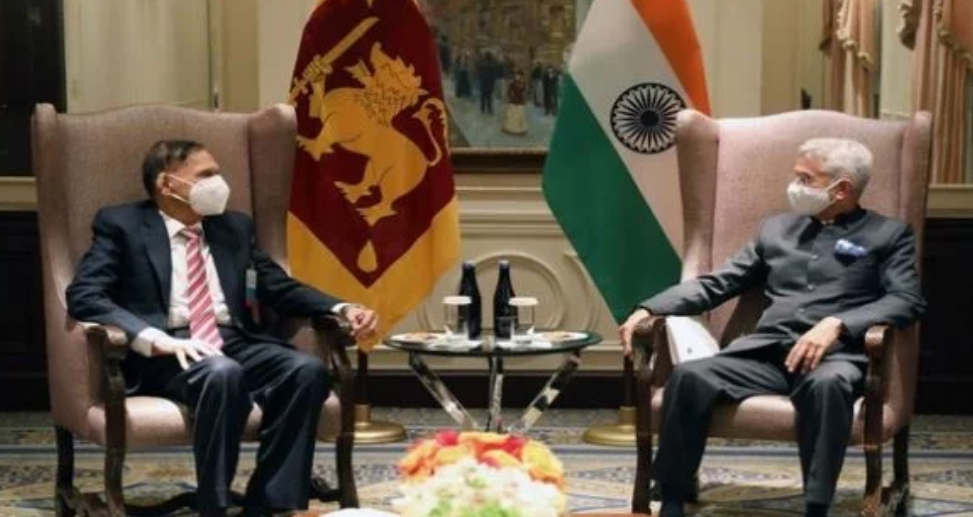By P.K.Balachandran
The Sri Lankan Foreign Minister G.L.Peiris’ visit to New Delhi from February 6 to 8, is of considerable importance to both Sri Lanka and India. Both have important expectations. While the financial issues involving emergency Indian aid have been settled during Finance Minister Basil Rajapaksa’s visit to New Delhi, other economic, political and geopolitics remain to be resolved. These fall in the domain of Foreign Minister Prof.G.L.Peiris.
UNHRC Session
From the Sri Lankan point of view, the greatest political challenge facing the government, apart from the economic crises marked by a shortage of essentials and forex, is the prospect of continued censure at the 49 th. Session of the UN Human Rights Council (UNHRC) in Geneva beginning at the end of February.
Colombo would not only want New Delhi to support it but also lobby for it among member countries it has influence over. Sri Lanka is assured of the support of China, Russia and Pakistan, but India’s support and lobbying would ease the tension greatly. The UNHRC has strong critics of Sri Lanka on the human rights issue, such as the UK, US, Germany, France and the Netherlands. Nineteen of the 47 Council members in 2022 will be “Friends of the Responsibility to Protect.” But R2P is anathema to Sri Lanka which zealously guards its sovereignty.
Sri Lanka is particularly concerned about a possible withdrawal of the European Union GSP-Plus trade concessions following censure at the UNHRC. If it loses the EU GSP plus facility, particularly at a time when livelihoods of millions of Sri Lankans belonging to all communities are already affected by the ongoing COVID-19 pandemic, the resulting losses would exacerbate poverty and income inequality. Some of the worst affected sectors will be fisheries and agriculture which are among the key sectors in the war-affected North and the Eastern Provinces of Sri Lanka.
In its defense, Sri Lanka will point out that areformed Prevention of Terrorism (PTA) Bill,according with international norms, is on the anvil. Millions of rupees have been disbursed as compensation to the civilian victims of the war. It will deny charges of militarization and also say that 92% of the land seized from civilians during the war have been given back.
Devolution of Power
However, as far as India is concerned, it will be interested in Sri Lanka’s fully implementing the system of devolution of power envisaged for the Tamils in the 13 th,Amendment (13A) of the Sri Lankan constitution based on the India-Sri Lanka Accord of 1987. The Tamil parties have however appealed to Indian Prime Minister Narendra Modi to press Colombo to adopt a “federal” structure based on the principle of self-determination/self–rule. New Delhi is not expected to press for this demand, given its own tendency to centralize governance in India. But Sri Lanka would like an assurance from India that this demand would not be entertained at all.Peiris’ stand on the 13A would be that an expert group is working on a draft new constitution which will be brought before parliament later this year.
As part of its campaign to get the 13A implemented in full, New Delhi has also been wanting Colombo to hold the overdue Provincial Council elections. Peiris would say that preparations are being made to hold the elections later this year.
Indian Projects/Chinese Inroads
New Delhi would like Colombo to implement the projects for which MOUs had been signedbut no follow up actions were taken. In 2017,there were a dozen or so project MOUs which were signed are gathering dust. Indian investors feel that even if they bid for projects, thesewould be awarded to the Chinese ultimately. New Delhi would demand an even playing field.
India is also worried about Chinese intrusion into Tamil-speaking North Sri Lanka which India considers its strategic backyard. The Chinese are wooing the Northern Tamil fishing community with fisheries projects which could provide an alternative livelihood to a community which has virtually lost its fishing rights to poachers from Tamil Nadu.
China had made a bid to enter power generation in three islands in the North not far from India. But India had successfully thwarted this by citing security concerns. India is likely to request Sri Lanka to discourage Chinese bids to find a foothold in the Tamil north. In this matter, New Delhi has the support of the Lankan Tamils. But the Indian demand will put Colombo in a tight spot as China is a major investor in Sri Lanka. It accounts for 10% of the foreign loans obtained by Sri Lanka.
India has been trying to stem Chinese inroads into Sri Lanka through economic and infrastructure projects. But Sri Lanka has been wary. This is because India is seen by Sri Lankans to be interfering in their internal affairs. India interferes on the Tamil issue. China on the other hand has no such ethnic constituency to cater to in Sri Lanka. Therefore,its relations with Colombo are relatively tension-free.
Islamic Terrorism
Since New Delhi is vitally interested in securing itself from Islamic terrorism, especially seaborne terrorists from Pakistan, it will ask for Sri Lanka’s cooperation in fighting it. Sri Lanka will readily oblige in this matter as it had been a victim of Islamic terrorism in August 2019 which caused 270 deaths. In the domestic sphere, Colombo is exceptionally hard on Islamic radicals. But Sri Lanka has to keep in mind that its steps do not spoil relations with Pakistan which has been a firm supporter of Sri Lanka’s on human rights issues in international forums.
As pointed out earlier, the Lankan Foreign Minister is unlikely to discuss economic issues because India has already announced aid amounting to US$ 1.5 billion following the visit of Finance Minister Basil Rajapaksa to Delhiearlier.
Apart from the nitty gritty, Peiris’ visit will enable the two sides to exchange views on regional and international issues.
END





